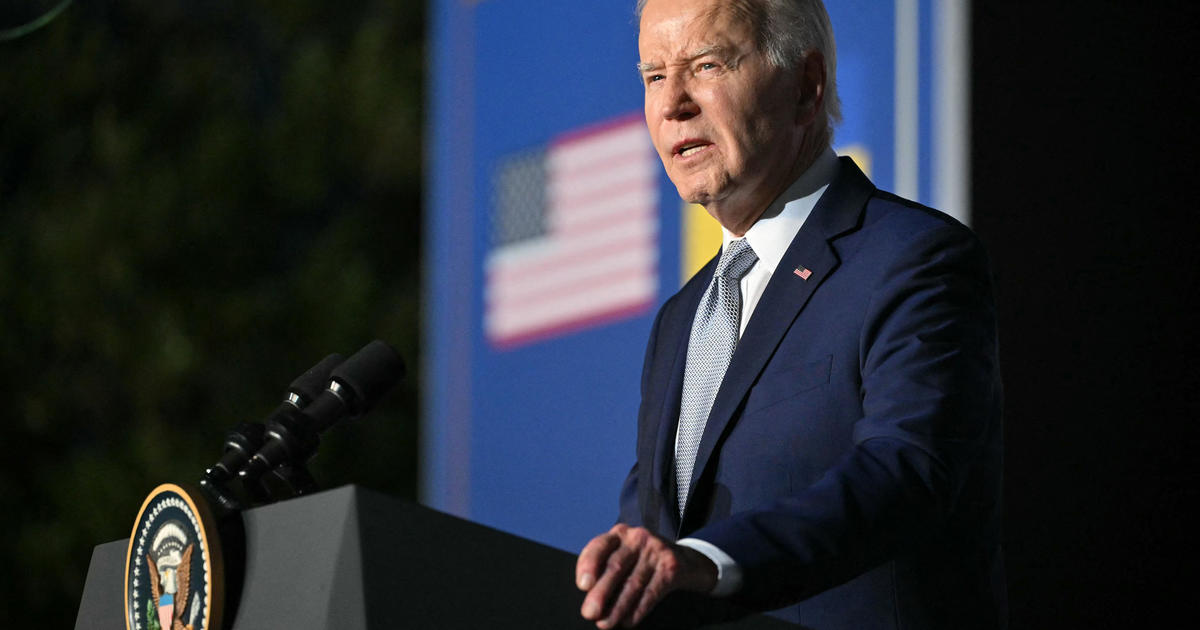President Biden made it clear on Thursday that he will not pardon or commute any sentence that his son, Hunter, receives for his conviction on three counts of felony gun charges. This statement was reiterated by the president during a joint news conference with Ukrainian President Volodymyr Zelenskyy in Italy. President Biden expressed pride in his son’s ability to overcome addiction and described him as one of the brightest and most decent men he knows. Despite this, Biden stated that he would abide by the jury’s decision and would not intervene to pardon or commute Hunter’s sentence.
The president’s stance on not pardoning or commuting his son’s sentence was reinforced when a reporter asked him about the possibility of commuting Hunter’s sentence after the news conference. President Biden responded with a firm “No,” indicating his commitment to respecting the legal process and the jury’s decision in his son’s case.
Commuting a sentence involves shortening or ending a sentence, typically a prison sentence. Hunter Biden currently faces the possibility of up to 25 years in prison, although he has not yet been sentenced. It remains uncertain whether he will ultimately serve any prison time, as his legal team is expected to pursue appeals in the case. The charges against Hunter Biden stemmed from allegations that he lied about his drug use on a form from the Bureau of Alcohol, Tobacco, Firearms, and Explosives when purchasing a revolver, ammunition, and a speed loader in Wilmington, Delaware in 2018. Federal law prohibits individuals who are unlawful users of controlled substances from possessing firearms.
Throughout Hunter Biden’s trial, several members of his family, including First Lady Jill Biden, were present in the courtroom. However, President Biden himself chose to stay away from the proceedings, opting to visit his son and family in Delaware only after the trial had concluded. The decision to maintain distance from the trial likely reflects President Biden’s desire to avoid any appearance of interference or influence in the legal process involving his son.
It is worth noting that the outcome of Hunter Biden’s case has garnered significant media attention and public interest, given his status as the son of the sitting President of the United States. The administration’s handling of the situation has been closely scrutinized, with President Biden’s refusal to pardon or commute his son’s sentence seen as a principled stand in upholding the rule of law and allowing the judicial process to run its course without political interference.
As the legal proceedings continue and potential appeals are pursued, the future of Hunter Biden’s case remains uncertain. The involvement of high-profile figures and the complexities of the charges against him have added layers of complexity to the case, making it a focal point of public discussion and debate. The outcome of this case will likely have lasting implications not only for Hunter Biden and his family but also for the broader legal and political landscape in the United States.
In the aftermath of the trial, questions have also been raised about the broader implications of Hunter Biden’s actions and the impact they may have on public perceptions of the Biden administration. The case has underscored the challenges and complexities that can arise when personal and political interests intersect, highlighting the need for transparency, accountability, and adherence to the principles of justice and fairness in the legal system.
The decision by President Biden to refrain from pardoning or commuting his son’s sentence has been met with a mix of reactions from the public and political observers. Some have praised the president for upholding the rule of law and maintaining the integrity of the judicial process, while others have criticized his decision as being overly harsh or unsympathetic to the personal struggles of his son. The delicate balance between personal loyalty and public responsibility that President Biden faces in this situation highlights the complexities and challenges of navigating the intersection of family, politics, and the law in the public eye.
As the legal proceedings in Hunter Biden’s case continue to unfold, it remains to be seen how the situation will ultimately be resolved and what impact it will have on the Biden administration and the broader political landscape. The president’s commitment to respecting the legal process and allowing the judicial system to determine the outcome of his son’s case underscores the importance of upholding the principles of justice, fairness, and accountability in all aspects of governance. The outcome of this case will undoubtedly shape perceptions of the Biden administration and its approach to issues of ethics, transparency, and integrity in the years to come.









